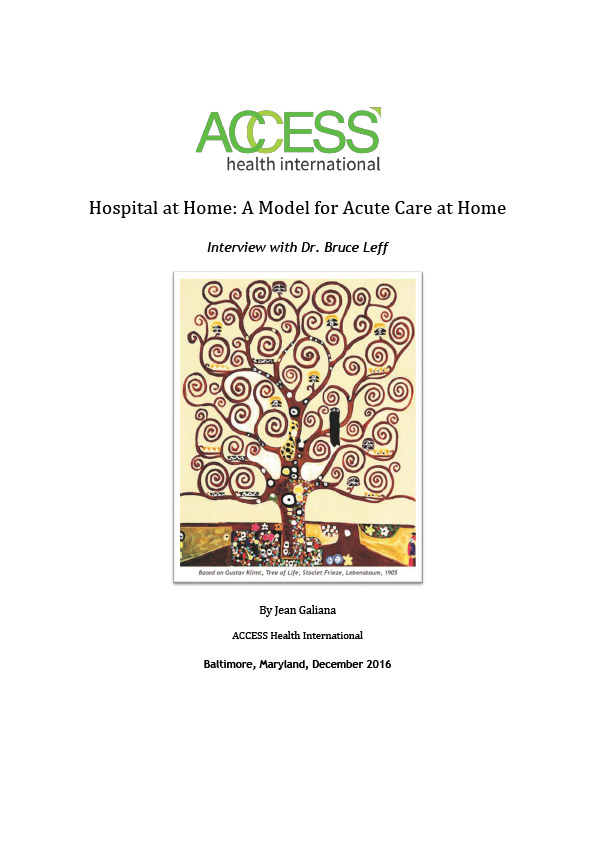When older people become acutely ill, the hospital is not always the best place for them to stay. Elders are prone to bacterial and virus infections that come from extended hospital stays. Complications after hospitalization such as functional decline, delirium, or acute confusion can be potentially as lethal as the original illness itself and often requires extra care and rehabilitation. For those reasons, Johns Hopkins Schools of Medicine and Public Health developed Hospital at Home.
Hospital at Home is a model to provide acute hospital level care in the home as a substitute for care provided in the hospital. Dr. Bruce Leff, a professor of medicine at the Johns Hopkins University School of Medicine, directs the Center for Transformative Geriatric Research. In this interview, he talks about his two decades of dedication to the development and dissemination of the Hospital at Home philosophy and model. He describes the demand for home based care that is equal to hospital care. He also explains how Hospital at Home functions and how he sees the future of patient care.
The Hospital at Home model was studied and evaluated nationally. Research found that Hospital at Home realized cost savings of almost one third. It also produced better health outcomes. Family members reported less stress, and patients and family members reported higher satisfaction levels.


